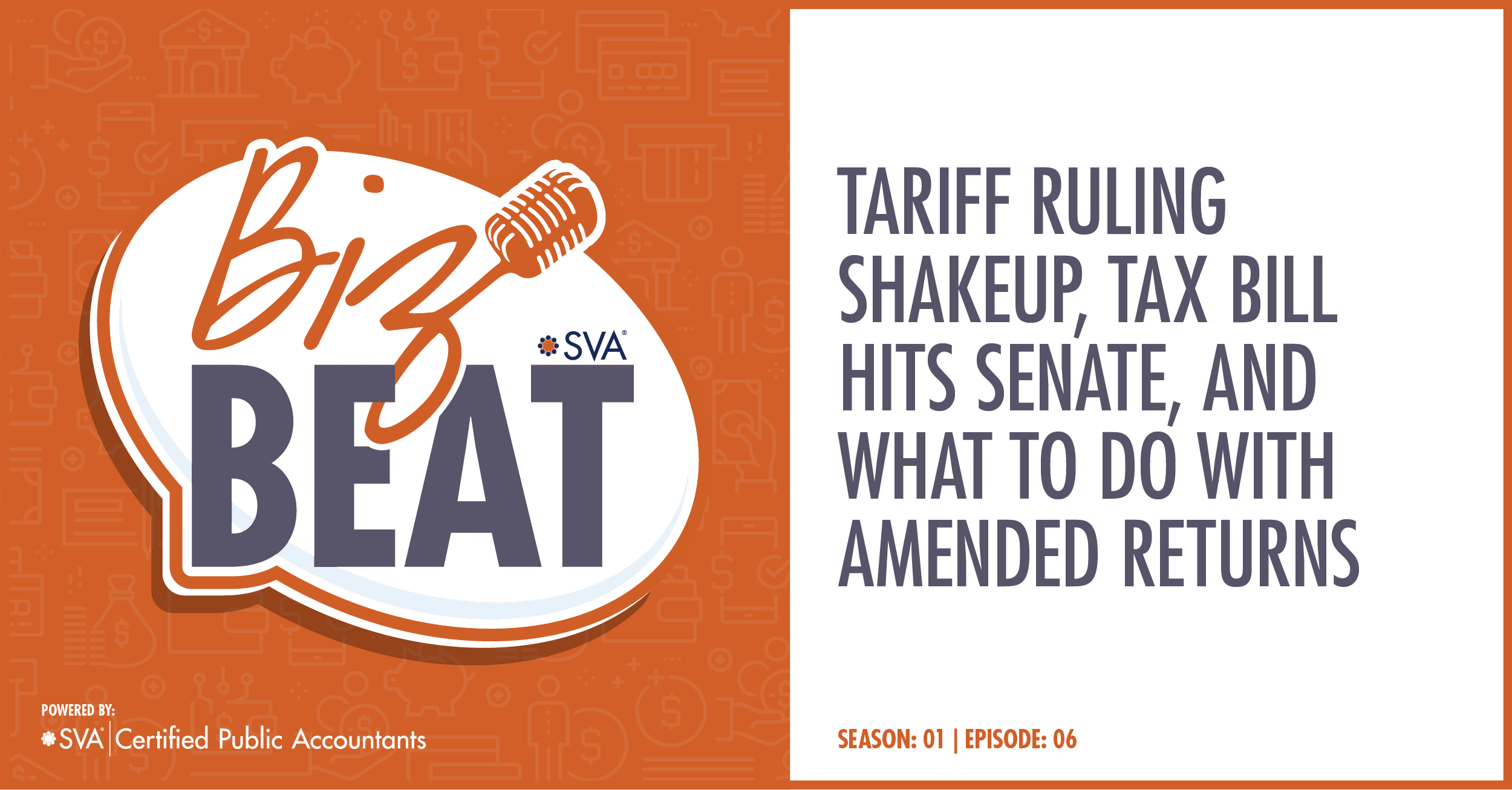With global trade in flux and tax legislation stuck in limbo, staying informed can help business owners make smarter, more confident decisions.
In this article, we’ll explore three timely topics:
- A recent court ruling on Trump-era tariffs and its potential impact on ongoing trade negotiations
- The stalled progress of the proposed federal tax bill in the Senate
- What to do if you receive updated investment statements after filing your taxes
Here's a look at the latest developments and how business owners can respond.
(Download Video Transcript)
A Court Ruling Challenges Trump's Tariffs
A federal court recently ruled that tariffs enacted during President Trump’s administration were not legally implemented. These tariffs were imposed without Congressional approval and targeted imports from countries like China, Mexico, and members of the European Union.
The court determined that trade policy changes of this magnitude should go through the proper legislative channels, meaning the House and Senate.
However, the story isn’t over. The federal government is now appealing the ruling and has requested a stay, which would delay enforcement of the court’s decision until the appeal is resolved.
In the meantime, the administration continues to negotiate new trade deals, signaling confidence that the tariffs (or something similar) will ultimately move forward.
What Should Business Owners Do?
Continue monitoring your supply chain and regularly assess how tariffs are affecting your costs. These developments could take weeks or more to fully unfold, so staying proactive rather than reactive will put you in a better position to respond quickly when the next update drops.
Tax Bill Stalls in the Senate: What's Next?
After passing through the House, the much-anticipated federal tax bill has hit a roadblock in the Senate. Although Republicans hold a narrow advantage, several GOP senators have expressed concerns about the bill’s potential impact on Medicaid and food stamps, as well as its projected $3.9 trillion increase to the national deficit. As a result, it currently lacks the votes needed to move forward.
Given these obstacles, revisions to the bill seem likely. But any changes made in the Senate would also need to be re-approved by the House, slowing down what once looked like a fast-track process.
How Should Business Owners Prepare?
It’s wise to begin tax planning now, even with uncertainty in the air. Consider running two sets of scenarios: one under current law and another based on elements from the proposed bill that seem likely to pass.
While it’s still early in the year, developing contingency plans now could save you from scrambling if changes are passed late in the calendar year.
Should You Amend Your Tax Return After Getting Updated Investment Info?
It’s a common scenario: you file your tax return in March, and then a month later, you receive revised investment account statements. If those numbers differ from what you originally filed, should you do anything?
In short, yes, especially if the revised statements are tax-relevant forms like a 1099. These updated numbers are also sent to the IRS, which means mismatches could trigger a bill down the road.
Filing an amended return allows you to correct the discrepancy proactively. The process is relatively straightforward and can be done electronically in many cases.
Why Act Now Instead of Waiting for the IRS to Catch It?
If the IRS identifies the discrepancy first, you could face added interest and penalties. Interest is currently around 7%, and penalties could tack on another 6% annually. Acting early could reduce or eliminate these extra costs.
Stay Ahead with The Biz Beat
Want more insights like these? The Biz Beat by SVA is your weekly go-to source for practical tax and business advice.
Subscribe on Apple Podcasts, Spotify, or YouTube.
Submit questions at sva.com/bizbeat
© 2025 SVA Certified Public Accountants

